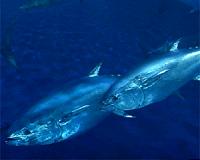| . |  |
. |
Brisbane, Australia (SPX) Feb 04, 2010 A QUT team of scientists is taking an in-depth look at how iron, which gives our iron-rich soil its red colour, reaches water to potentially contribute to the algal blooms, which not only have a foul smell, but also make our eyes sting, cause fish kills and smother seagrass. Their research is centred on the catchment of Poona Creek on the Fraser Coast which drains into Great Sandy Strait - a dugong sanctuary and an internationally recognised wetlands for migratory birds. Iron is known to be a component causative factor for algal blooms but the mechanism by which solid iron in soils becomes soluble and contributes to coastal algae blooms is largely unknown. That is why the team from QUT' s Institute for Sustainable Resources is taking the three-pronged approach of microbiology (biogeochemistry), geochemistry and hydrology studies to put together enough pieces of the iron jigsaw to form the basis for future research into mitigating its contribution to dangerous algal blooms. PhD student Lin Chaofeng is studying two types of bacteria in water that "feed on" iron. "One type of bacteria in our waterways changes iron into a dissolved state and another type of bacteria oxidises the iron and turns it back into a insoluble form which can settle on the bottom of a creek ," Ms Lin said. "The oxidising type of bacteria possibly makes the iron less available as a contributing factor in algal blooms. It seems that these two bacteria usually balance each other out, but sometimes the balance is upset and so I am investigating how this happens." QUT geology student Stefan Loehr is studying soil and sediment samples from the catchment to analyse their iron content and search for possible contributory mechanisms for iron dissolving in water. He has studied the concentration of iron in soil in native vegetation and in pine plantations and found no significant difference in iron concentrations. "It could be that different types of plants lead iron to be more easily soluble and so I am also investigating whether there are any differences between natural vegetation and plantation areas," Mr Loehr said. Hydrology student Genevieve Larsen's study of subsurface and surface water and flow processes is aimed at finding out how the iron gets from the ground into the water, and the chemical reactions that may take place when groundwater interacts in the estuary with the marine environment. "I'm looking for possible links between subsurface water and natural waterways such as streams, creeks and the sea," Ms Larsen said.
Share This Article With Planet Earth
Related Links Institute for Sustainable Resources at QUT Water News - Science, Technology and Politics
 France wants tuna trade ban in 18 months: minister
France wants tuna trade ban in 18 months: ministerParis (AFP) Feb 3, 2010 France wants a ban on international trade in bluefin tuna to come into force in 18 months in order to protect the over-fished species, Ecology Minister Jean-Louis Borloo said Wednesday "This is a difficult decision... but a necessary one," he told reporters. The announcement came as the European Union has to decide whether to back calls for the lucrative but over-exploited fish - belove ... read more |
|
| The content herein, unless otherwise known to be public domain, are Copyright 1995-2010 - SpaceDaily. AFP and UPI Wire Stories are copyright Agence France-Presse and United Press International. ESA Portal Reports are copyright European Space Agency. All NASA sourced material is public domain. Additional copyrights may apply in whole or part to other bona fide parties. Advertising does not imply endorsement,agreement or approval of any opinions, statements or information provided by SpaceDaily on any Web page published or hosted by SpaceDaily. Privacy Statement |